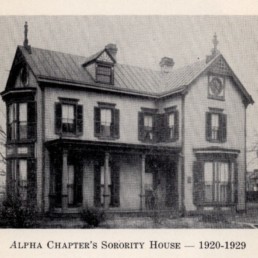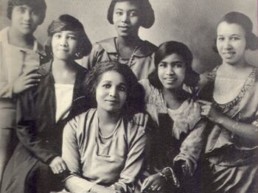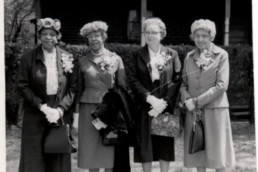
Alpha Kappa Alpha Sorority, Incorporated History
In 1908, Alpha Kappa Alpha Sorority became America’s first African American Greek-letter organization established by Black college women. Its roots date back to Howard University, Washington, D.C., where the idea of formation was envisioned by Ethel Hedgeman Lyle of St. Louis, Missouri. The sorority would become the instrument by which collegial women would interact socially and intellectually with the aspects of college life through enriched mental stimulation and interaction with friends and associates. Led by Ethel Hedgeman Lyle, the nine Howard University students who came together to form Alpha Kappa Alpha Sorority were the scholastic leaders of their classes. Each also had a special talent or gift that further enhanced the potential of this dynamic group. With the exception of Ethel, the original group of women was comprised of college seniors. To ensure the continuity of the organization, seven Class of 1910 honor students who had expressed interest were invited to join without initiation. Nellie Quander was elected president in 1911. Under her visionary leadership, Alpha Kappa Alpha initiated a dynamic plan of expansion. The first step of establishing a national body in perpetuity was taken in 1913 when Alpha Kappa Alpha Sorority was legally incorporated.

Together with eight other coeds at the mecca for Negro education, Hedgeman crafted a design that not only fostered interaction, stimulation, and ethical growth among members; but also provided hope for the masses. From the core group of nine at Howard, AKA has grown into a force of more than 280,000 collegiate members and alumnae, constituting more than 980 chapters in 42 states, the District of Columbia, the US Virgin Islands, the Bahamas, Germany, Africa, South Korea, Japan, Canada, and on the continent of Africa.
For more information on Alpha Kappa Alpha Sorority, Inc., please visit www.aka1908.com or click button below.
